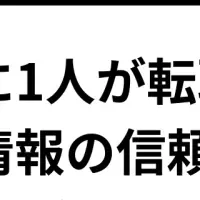
Election-Year Turbulence Raises Concerns for Federal Employees but Offers Opportunities for Growth
Political Shake-Up Threatens Federal Workforce
As the nation anticipates the next election cycle, the ripple effects are already felt within the federal workforce. Thousands of employees find themselves in a precarious position, facing the possibility of job reclassifications, hiring freezes, and even layoffs. Despite the uncertainty, experts from the Professional Association of Résumé Writers and Career Coaches (PARWCC) believe this period can serve as a valuable opportunity for federal employees to pivot their careers toward the private sector.
Preparing for Change
Diane Hudson, Director of the Certified Professional Career Coach (CPCC) program for PARWCC, urges federal employees not to panic. "We’re hearing from people who are understandably anxious, but this is a crucial time for preparation," Hudson explains. She advises workers to keep their résumés updated, be aware of their skill sets, and embrace this transition as a chance for professional development.
The virtual panel consisting of career experts highlights the importance of staying vigilant and proactive. Michael Greco, a consultant specializing in federal résumés, emphasizes the inevitability of workforce changes. "The question isn't whether changes will happen, but when and how prepared you will be for them," he notes. This sentiment resonates with Kevin Bottino, a 25-year Air Force veteran and PARWCC-certified coach, who reports an increase in clients worried about impending layoffs. He suggests that this moment of uncertainty can also ignite a realization of the transferability of federal skills to the private sector.
The Historical Context
Political upheavals have historically led to reorganizations within federal agencies. With contentious budget discussions underway and potential reclassifications looming, employees may face abrupt transitions or even untimely retirements. The panelists agree that while details are still developing, the time for proactive action is now.
Key Strategies for Federal Employees
1. Revise and Adapt: Traditional federal résumés can be extensive, often spanning several pages. Experts recommend crafting concise, achievements-oriented résumés suited for private-sector hiring processes.
2. Identify Transferable Skills: The competencies gained in federal positions—like crisis management, compliance, and stakeholder engagement—are highly sought after in the private sector.
3. Expand Networking: Utilizing platforms like LinkedIn and maintaining personal contacts can enhance opportunities. Hudson advocates for simple outreach efforts, highlighting the effectiveness of maintaining communication even through casual greetings.
4. Seek Coaching: Transitioning jobs can be overwhelming and stressful. Having professional support can help individuals manage anxieties, including impostor syndrome that often accompanies job changes.
Bridging the Cultural Divide
One significant challenge federal employees often face is adapting to the distinct cultural environments of private businesses versus government entities. Panelists pointed out that many federal workers have limited exposure to the interviewing dynamics prevalent in fast-paced corporate settings.
"Federal hiring processes are heavily regulated, but corporate interviews can be much quicker and vary widely in their focus on softer skills and cultural fit," Greco mentioned. The support of career coaches can be critical in helping clients understand these differences and prepare effectively.
New Initiatives for Career Transition
In light of the growing concerns among federal personnel, PARWCC has launched the Master Series on Federal to Civilian Career Transitions. Led by résumé strategist Sarah Moore, who has advised notable organizations like NASA and the Department of Defense, this series aims to provide crucial guidance on:
- - Translating federal experiences into language suitable for civilian job markets.
- - Recognizing and overcoming the cultural differences between public and private sectors.
- - Developing job search strategies to boost the likelihood of employment success.
This initiative not only aims to assist transitioning federal employees but also provides career coaches with enhanced strategies for counseling their clients. As Bottino aptly puts it, when handling such transitions, it is about more than just paperwork; it is about guiding individuals through times that significantly impact their lives and families.
Conclusion
PARWCC stands as a beacon for nearly 3,000 career service professionals across more than 40 countries. Their efforts set a high standard for credentialing and professional development in career coaching and résumé writing. For federal employees navigating the uncertainties of an election year, PARWCC-certified coaches are ready to support them with actionable strategies, from reshaping résumés to understanding hiring systems in the private sector. This proactive approach can make all the difference in finding success amidst a shifting landscape.
Topics People & Culture)










【About Using Articles】
You can freely use the title and article content by linking to the page where the article is posted.
※ Images cannot be used.
【About Links】
Links are free to use.